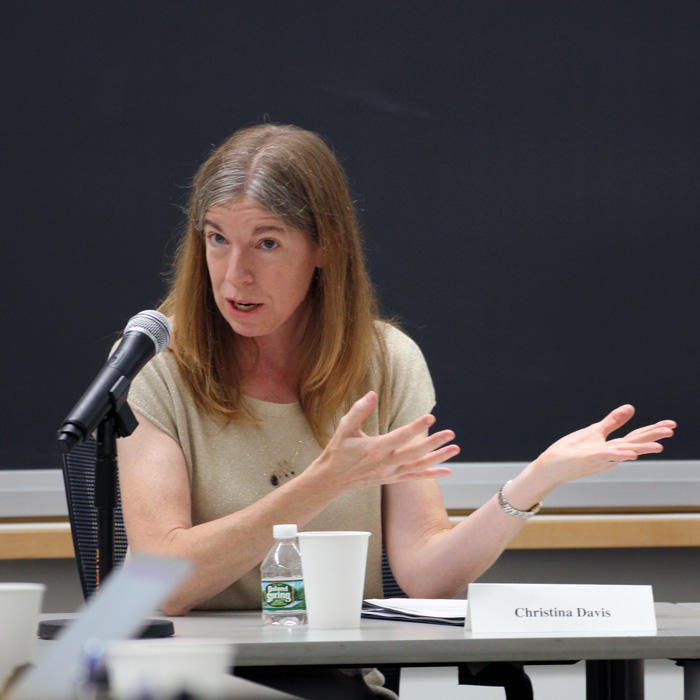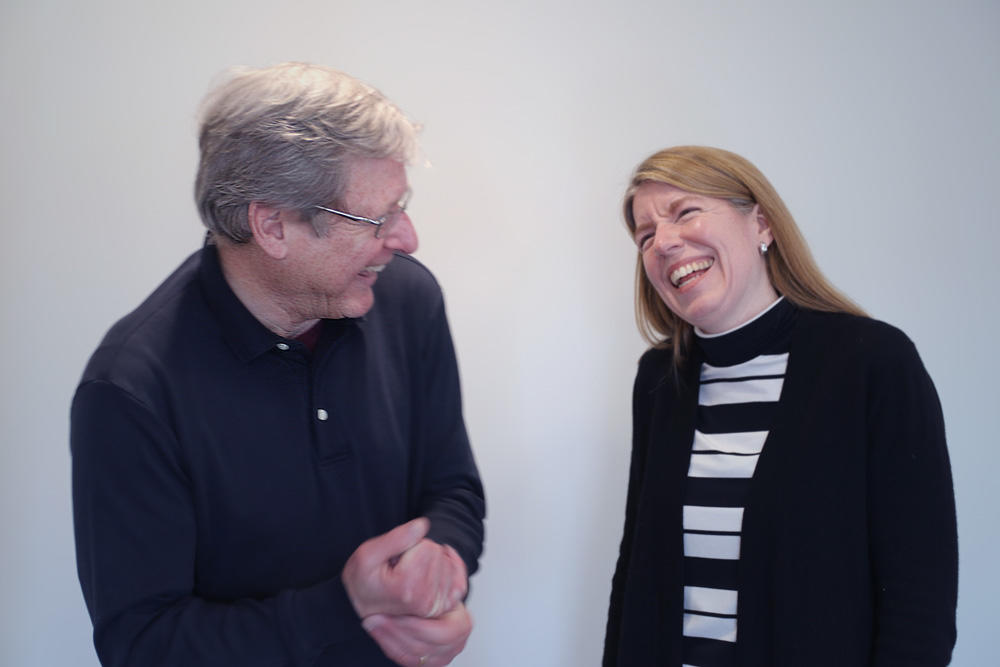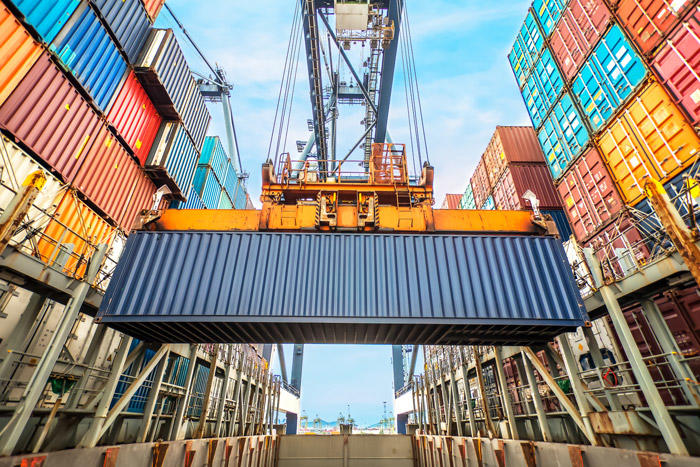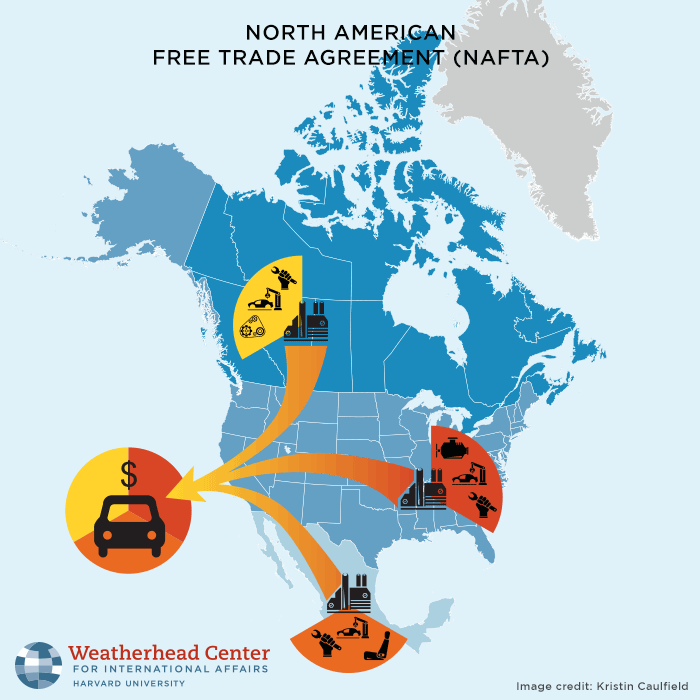Harvard Professor Christina L. Davis discusses President Trump's strategies on trade—some of which may not be as outlandish as many people think.

This is the first blog post in a series of edited transcripts from a panel on Trump's presidency held during our orientation in August 28, 2018. Our three panelists were Christina L. Davis, Melani Cammett, and Timothy Colton.
Since the panel took place, Mexico, Canada and the United States reached an agreement to restructure and revamp the North American Free Trade Agreement. Now renamed the United States-Mexico-Canada Agreement, or USMCA, the trade accord includes, for example, some help for the US dairy and drug industries, stricter protections for autos made in North America, updated intellectual property rights, and improved labor rights and environmental protections. Legislatures of all three countries must ratify the new deal.
This transcript has been edited for length and clarity.
Talk delivered by Christina L. Davis:
It’s another interesting day in the study of trade.
I still don't follow Twitter, but I do check the news before I come to talk about trade. I think we're in NAFTA, but just barely, today. So the latest news is the US supposedly has some deal with Mexico. They're going to tell Canada, you can join, or you don't have to. And we're ripping up NAFTA. And this will be the best trade deal ever.
It's really amazing studying trade policy because this is one area where Trump has been fairly consistent. Since the 1980s, Donald Trump has been anti-trade. And it's also one of the areas where he's delivering beyond the rhetoric.... Read more about Trump's Impact on the World: Christina L. Davis on Trade




